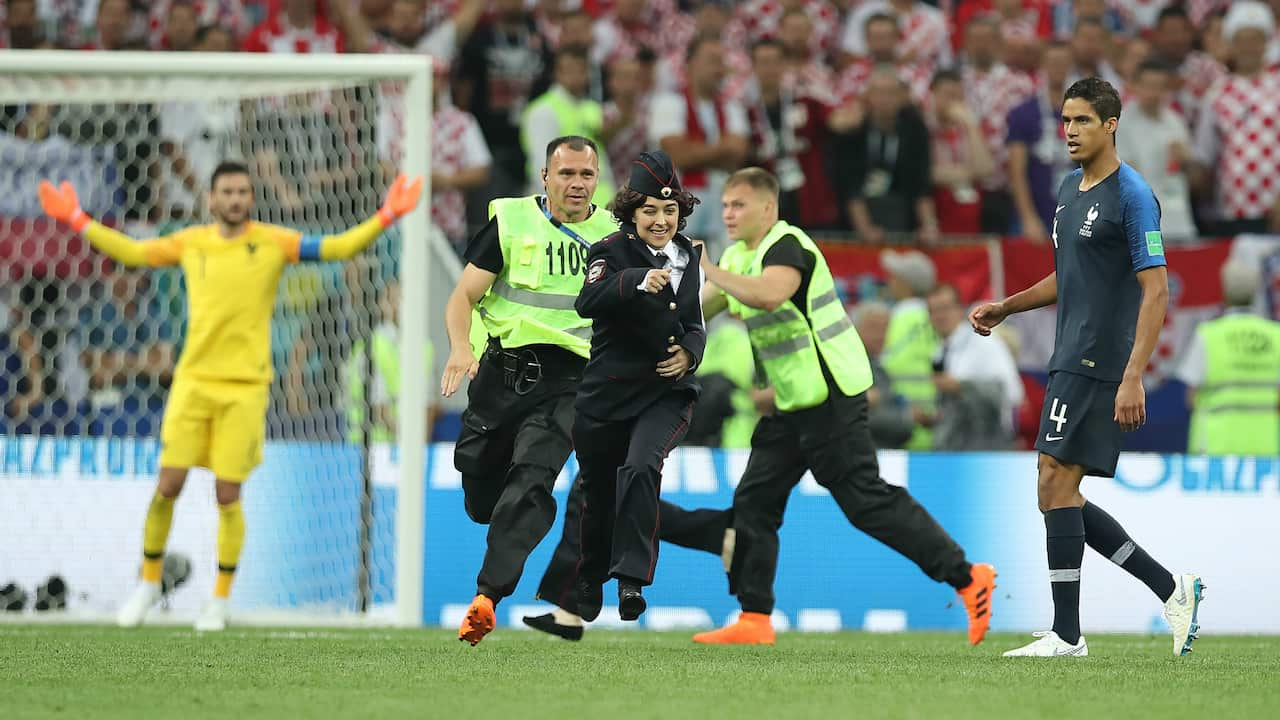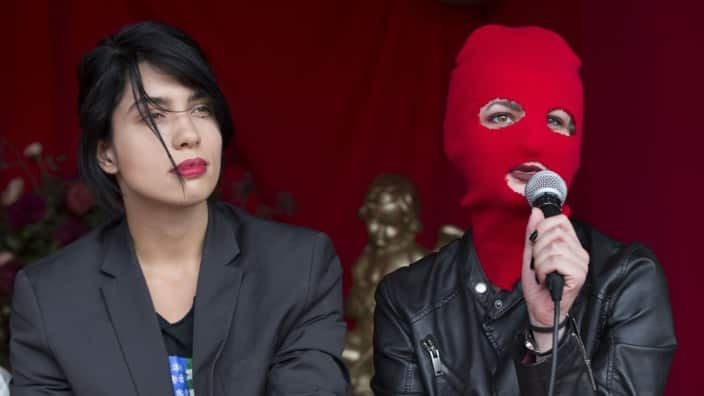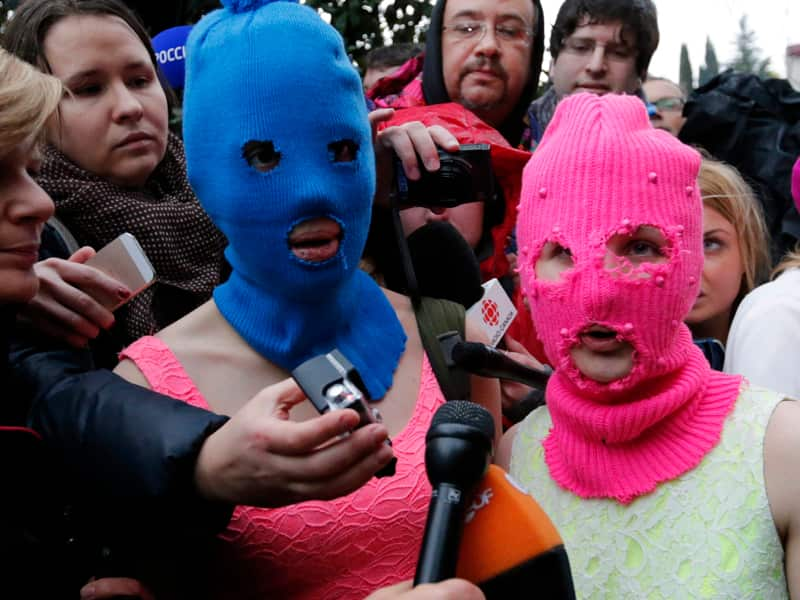

Explainer
Who are Pussy Riot? The World Cup pitch invaders
Here's a guide to the Russian activist group that crashed the World Cup final.
Published
Four members of Russian punk group Pussy Riot were sentenced to 15 days in jail for storming the pitch during the World Cup final.
A Moscow court has also banned them from official sports events for four years after they interrupted the event at Moscow’s Luzhiniki Stadium, dressed in police uniforms.
Who are they?
Pussy Riot are a feminist, punk rock band based in Moscow, with a rotating cast of musicians and artists. Founded in August 2011, the group conducts controversial protest stunts and performances against human rights violations and political oppression.
They perform their protest art and music around the world, having visited a number of countries, including Australia. They’re known for their performative activism style and anti-Kremlin feeling.

Why are they in the news?
The group received recent global publicity when four members interrupted the FIFA World Cup final between Croatia and France on Monday.
The stunt was a protest against FIFA policies, political oppression and police conduct. High-ranking officials including President Vladimir Putin and the Croatian and French presidents were in attendance.
"FIFA is involved in unfair games unfortunately. FIFA is a friend of heads of states who carry out repression, who violate human rights," protester Kurachyova said.
What have they done before?
Pussy Riot rose to international prominence in February 2012, when three members were imprisoned for a protest at Moscow’s Cathedral of Christ the Saviour.
The members entered the cathedral to perform ‘Punk Prayer’, a song attacking the Orthodox Church’s support for President Putin. Wearing coloured balaclavas, the group sung “Mother of God, Blessed Virgin, drive out Putin!”
Arrested and charged with "hooliganism motivated by religious hatred”, Yekaterina Samutsevich, Maria Alyokhina, and Nadezhda Tolokonnikova were sentenced to two years' imprisonment.
Their confinement was widely considered too harsh, sparking national and international attention. Many believed the women’s captivity to be an attempt to silence opposition to government.

The Amnesty law in December 2013 resulted in the women’s release. Anti-Kremlin critics consider its signing by parliament a move to avoid controversy over the Winter Olympics scheduled in February 2014.
“We have red lines beyond which starts the destruction of the moral foundations of our society,” said President Putin of the women. “If people cross this line they should be made responsible in line with the law."
The protesters' coloured balaclavas have since become well-known symbols of resistance.
Pussy Riot has engaged in a series of international protests in recent years against various powers.

In October 2017, the group stormed Trump tower in New York to protest against the imprisonment of Ukrainian filmmaker Oleg Sentsov during the annexation of Crimea in 2014.
Pussy Riot also released their song ‘Elections’ – a protest piece against “eighteen years of Putin’s Power” in March this year. The song emerged amid rising political feeling – particularly in the Russian youth – that Putin’s days are numbered.
Pussy Riot in Australia
In 2014, Pussy Riot members Nadya Tolokonnikova and Masha Alekhina spoke at Sydney’s Festival of Dangerous Ideas, providing parallels between Australia’s asylum seeker policy and the Russian justice system. The pair also called on the Australian parliament to ban Putin from the G20 conference scheduled later that year.
“We were surprised by the problems here, such as detention camps, which are similar to what is happening in Russia,” Tolokonnikova said.
